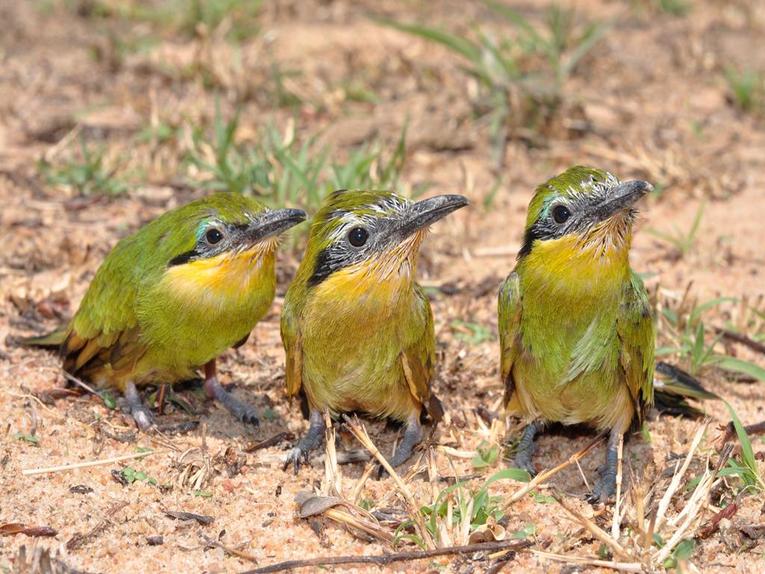The honeyguide is a cuckoo. Not officially, as they are related to woodpeckers, but in the brood-parasite sense. Their hosts would reject some eggs if they are somehow a mismatch, but natural selection could also act on cuckoo's detection of another parasite's egg. Cuculus canorus and Chalcites basalis, 2 cuckoo species have already failed this detection test.
Indicator indicator is the unrelated greater honeyguide ,who kills its nest-mates as many cuckoo-style parasites do. Many (35%) of its nests contain more than one female's egg, but only one will make it from the nest! The honeyguide's eggs are different in their size and their shape, depending on which species they are parasitizing. All of them are white however.
Dr Claire Spottiswoode of the Universities of Cambridge and Cape Town, wrote the paper after her research on 'A brood parasite selects for its own egg traits' was published in the journal Biology Letters.
She collected material in Zambia between 2008 and 2011, observing the nests of bee-eaters, of which about two-thirds were used by greater honeyguides. An experimental (dove) egg was added around the time of clutch completion and was treated as a successful egg if survived 3 days. Most honeyguides removed an egg when they laid one and attacked others. Claire noted the number of punctures in the experimental egg and the host eggs, but factors such as shell thickness and size were taken into account when conclusions were drawn.
If 2 eggs were laid by honeyguides in one nest, they were often different in volume meaning more than one female could have been involved. The first laid eggs never hatched however, presumably due to the puncturing by the second female, but also because the nest was often deserted by the bee eaters. 25% of second laid eggs survived and 30% of lone eggs. Almost every nest maintained the honeyguide egg for a mean time of 8 days.
In 27 of the manipulated nests, the brood-parasite visited, laying in 21 of the nests. They also dealt quite effectively with the "fake" eggs as they received more punctures than either host or other honeyguide eggs. The little bee-eaters, Merops pusillus don't react to the eggs of other species, but the honeyguides do. There is a selection pressure on first-laid honeyguide eggs, because smaller eggs are more likely to survive. Despite a long association with honeyguides, the hosts don't seem resistant to the parasite, apart from their desertion. The honeyguide may restrict its puncturing of every single egg. Its visibility to the hosts will also be significant, it seems, as it is associated with desertions.
When many parasites are attending a host, interference competition may well be important here for selection of the "fittest" honeyguide. This means that we could have host-specific mimicry developing, not in order to defeat the bee-eaters' sensibilities, but simply to prevent other honeyguides from maltreating their eggs. One or two eggs are often left, because the laying female wants to avoid detection and disturb the host eggs as little as possible. Complicated parasitism, but that goes with the job.










